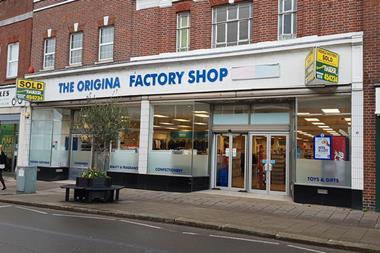The food and drink industry has responded to government concerns about obesity and health with a multi-million pound investment in innovation and the reformulation of some of the biggest brand names.
A survey of 20 of the UK’s leading food and drink manufacturers, with combined product portfolios worth more than £35bn at retail value and including names such as Cadbury Schweppes, Coca-Cola, Heinz, Kellogg and Unilever, reveals the enormous strides taken by industry since the release of the Choosing Health White Paper last year.
By the end of this year more
than a third of products, worth £7.4bn at the till, will have less salt compared to 2004, while 15% will have less fat and 10% less sugar. By the end of 2006, a £33bn portfolio of products will have full nutrition information on pack and almost two-thirds will display salt equivalent information and Guideline Daily Amounts to help consumers choose healthier options.
This is in addition to a quarter of all products that are already lower salt and fat variants and 32% that are already lower sugar.
The Food and Drink Federation, which undertook the survey, said the results showed how industry was honouring the commitments set out in its Food and Health Manifesto, launched last September, to deliver more choice and improved nutrition to consumers.
“We recognise there is still plenty to be done. But the data demonstrates the real determination of the food industry to make a substantive difference,” said FDF president Gavin Neath.
He conceded it was difficult to aggregate the data to give an overall picture, but said it had been done in as “transparent and robust a way as possible”.
However, Neath warned the industry was close to achieving the most it could in some areas of reformulation as consumer taste had now to catch up (see story below).
Last year’s Manifesto committed to more easily understandable nutritional information on pack; reducing, where possible, the levels of salt, fat and sugar in products and finding new ways of managing portion size, amongst other areas. Neath said such moves met a business need.
“If we had not addressed these issues our corporate and brand names would have suffered. There would have been an erosion of the market size of products and loss of confidence in manufactured food.”
Siân Harrington
A survey of 20 of the UK’s leading food and drink manufacturers, with combined product portfolios worth more than £35bn at retail value and including names such as Cadbury Schweppes, Coca-Cola, Heinz, Kellogg and Unilever, reveals the enormous strides taken by industry since the release of the Choosing Health White Paper last year.
By the end of this year more
than a third of products, worth £7.4bn at the till, will have less salt compared to 2004, while 15% will have less fat and 10% less sugar. By the end of 2006, a £33bn portfolio of products will have full nutrition information on pack and almost two-thirds will display salt equivalent information and Guideline Daily Amounts to help consumers choose healthier options.
This is in addition to a quarter of all products that are already lower salt and fat variants and 32% that are already lower sugar.
The Food and Drink Federation, which undertook the survey, said the results showed how industry was honouring the commitments set out in its Food and Health Manifesto, launched last September, to deliver more choice and improved nutrition to consumers.
“We recognise there is still plenty to be done. But the data demonstrates the real determination of the food industry to make a substantive difference,” said FDF president Gavin Neath.
He conceded it was difficult to aggregate the data to give an overall picture, but said it had been done in as “transparent and robust a way as possible”.
However, Neath warned the industry was close to achieving the most it could in some areas of reformulation as consumer taste had now to catch up (see story below).
Last year’s Manifesto committed to more easily understandable nutritional information on pack; reducing, where possible, the levels of salt, fat and sugar in products and finding new ways of managing portion size, amongst other areas. Neath said such moves met a business need.
“If we had not addressed these issues our corporate and brand names would have suffered. There would have been an erosion of the market size of products and loss of confidence in manufactured food.”
Siân Harrington



















No comments yet